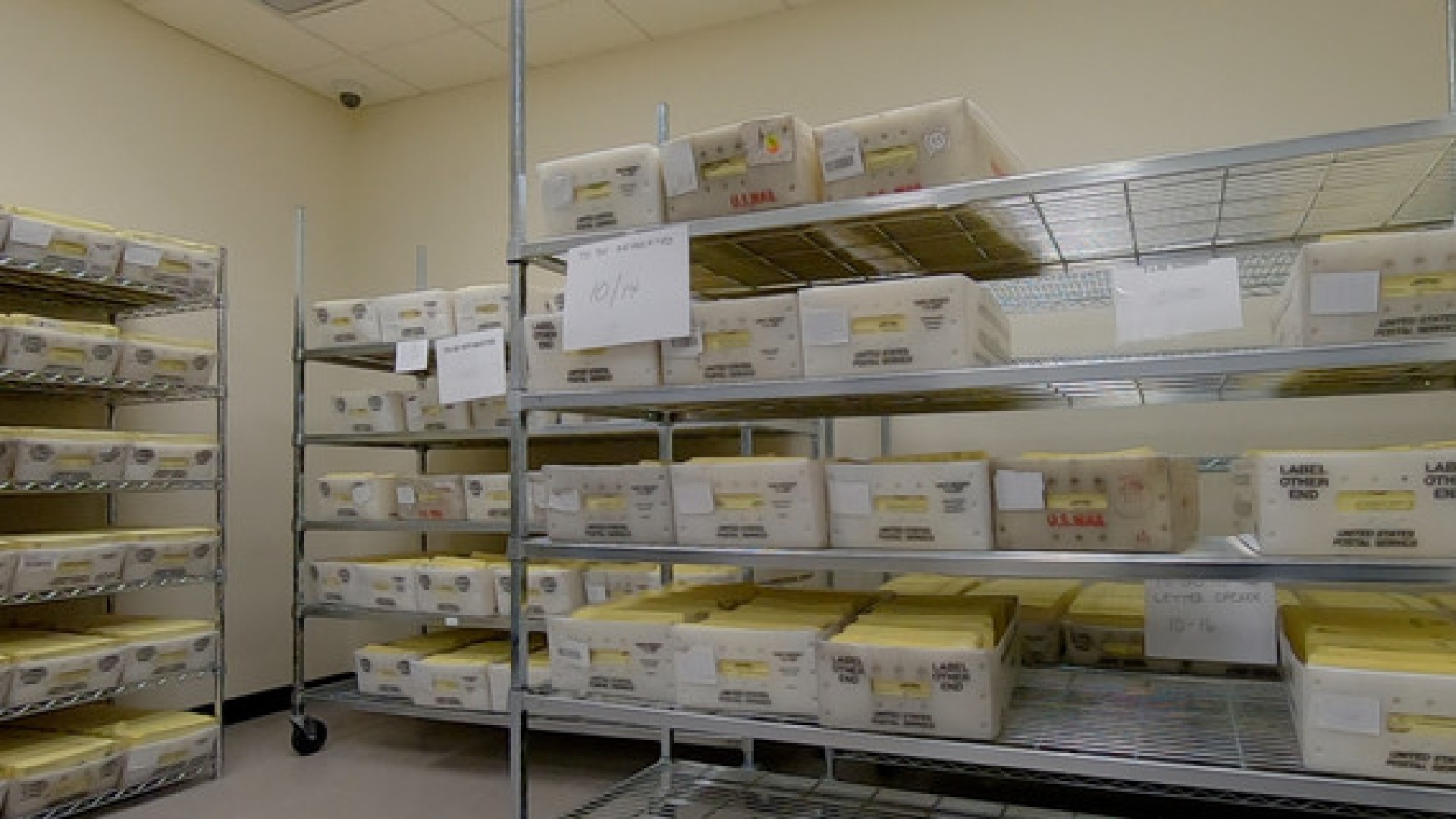 Boxes of uncounted early ballots are shown in this photo distributed by the Pima County Recorder's office on Oct. 16, 2020.
Boxes of uncounted early ballots are shown in this photo distributed by the Pima County Recorder's office on Oct. 16, 2020.
Proposition 414 is projected to raise an estimated $800 million for Tucson over the next ten years. If it passes, sales tax would go up by half a cent from 8.7 percent to 9.2 percent starting this summer.
In her annual Address to Tucsonans, Mayor Regina Romero made the case that Prop 414 is crucial to continuing to provide a sweeping variety of community services.
“Tucsonans have a long history of saying yes to investing in ourselves. We must say yes to investing in our community safety, and making the quality of life for every Tucsonan better,” she said.
But some of the controversy surrounding its approval is how the city plans to spend the estimated $80 million a year, and what it means about the current state of the city’s finances.
Romero and the city council are championing the election as an investment in public safety.
“I don’t want Tucson to be one of those towns where we have an 8-and-a-half-minute delay between calling 911 and having emergency services show up,” said Patrick DeConcini, a local property owner in support of Prop 414. “The difference between 5 minutes and 8.5 minutes is life and death. The firefighters, the police officers, the homeless services support people, they’re really undermanned, they’re underfunded, and they need this funding to be excellent at their jobs.”
Two-thirds of the tax revenue is planned under the umbrella of public safety; fire, police, and 911 service. In the fine print, this means new fire engines, ambulances and patrol cars, 911 personnel, body-worn cameras, two new Tucson Police Department aircraft, and 120 new TPD positions.
Former Vice President of Cox Enterprises Lisa Lovello said one of her biggest criticisms of the city council’s Prop. 414 campaign is the focus on first responders, especially why they haven’t already prioritized them in existing budgets.
“The police force and the firefighters should not be having to go out there with a tin cup and try to get tax increases so they can get basic tools that they need to do their job,” she said.
The potential tax is also facing economic criticism. Sales taxes are regressive, meaning they take a larger percentage of income from people who make the least.
Lovello said the city council hasn’t earned more taxpayer dollars.
“You do not provide organizations with more money whose priorities are not aligned with the values of the community,” she said. “20% of people that live in our city are in adverse poverty. So again, I don’t think the city council has their priorities straight because piling on more taxes for people who are on fixed incomes, on the elderly, and on the working poor, just is wrong.”
But DeConicini said with the 30 percent earmarked for housing and drug programs, paying slightly more in sales tax is the way to protect Tucson’s economy long-term.
“I cannot tell you how many times I’ve heard from our tenants, that their customers are complaining about drug use and homelessness affecting the shopping center that they operate their business out of,” he said.
Local officials say the impacts will be minimal.
“Food and rent are exempt from local sales taxes, which helps reduce the impact on households. Much of our sales tax collections come from tourists and visitors as well as shoppers from outside the city limits,” Ward 6 City Councilmember Karin Uhlich wrote in an official endorsement.
Also attracting negative attention is the timing; the middle of March is spring break for some, and Lovello said she thinks the off-season timing of the election may be a strategy from the city.
"They know that special elections have extremely low voter turnout. Less than 1 in 4 Tucsonans will vote for this tax in March, versus over 70% who would vote for it in a November ballot, and what disturbs me about that is they know that that happens. So they’ve spent a million dollars on a special election to ensure that very few people vote, knowing that they’re not gonna hear from the majority of the people,” said Lovello.
The city also claims the state legislature has forced its hand, generating a $400 million dollar shortfall in state revenue for the city over the next decade. Former Republican Governor Doug Ducey changed Arizona law from a graduated income tax rate to a flat tax of just 2.5 percent in 2021.
DeConcini said Tucson needs a safety net with more looming uncertainty from the federal level.
“The state is handing out less money to all the cities so it’s not just Tucson, the state revenues have dropped due to the flat tax,” he said. “With the Trump administration, I’m not sure that we can bank on having more support from the state of Arizona, more support from the federal government, it might be even more challenging. We need to have our own independent way of generating income to support those critical needs for our community.”
Ballots were sent out on Feb. 12 for the mail-in-only election. The City Clerk’s Office advises ensuring ballots are in the mail by no later than March 5th.

By submitting your comments, you hereby give AZPM the right to post your comments and potentially use them in any other form of media operated by this institution.